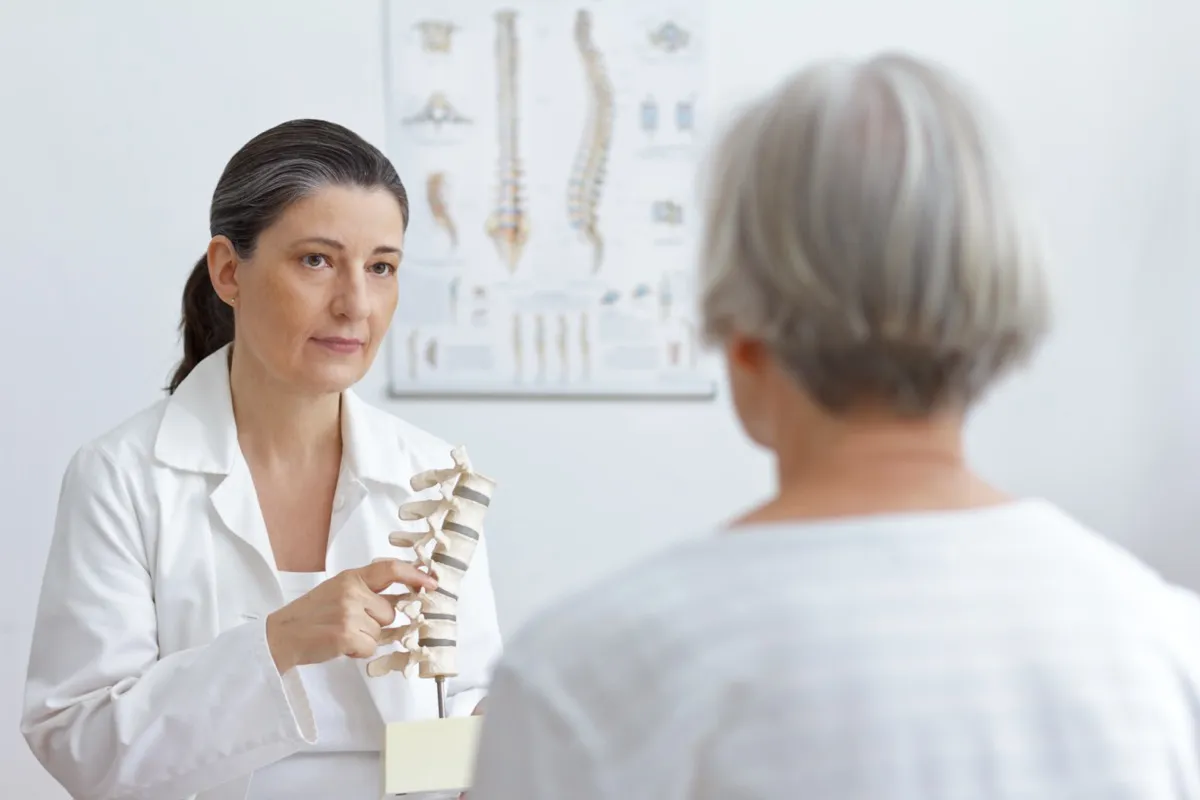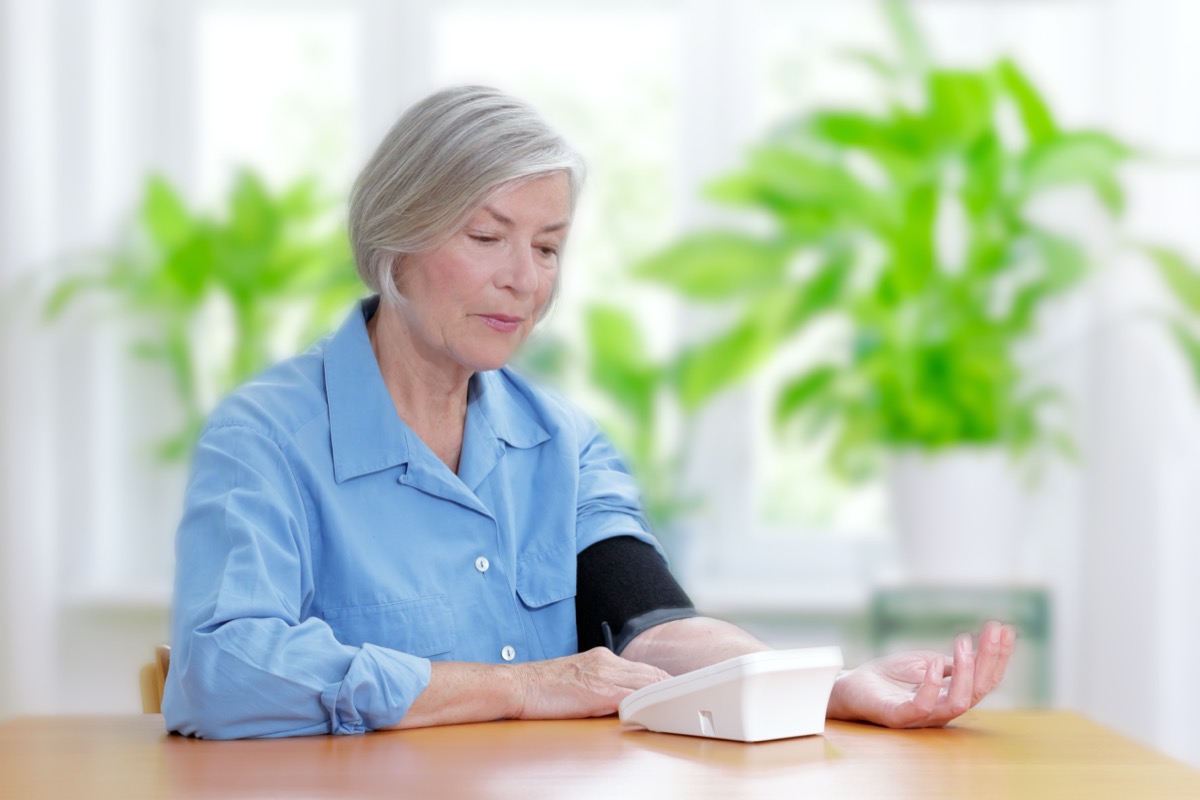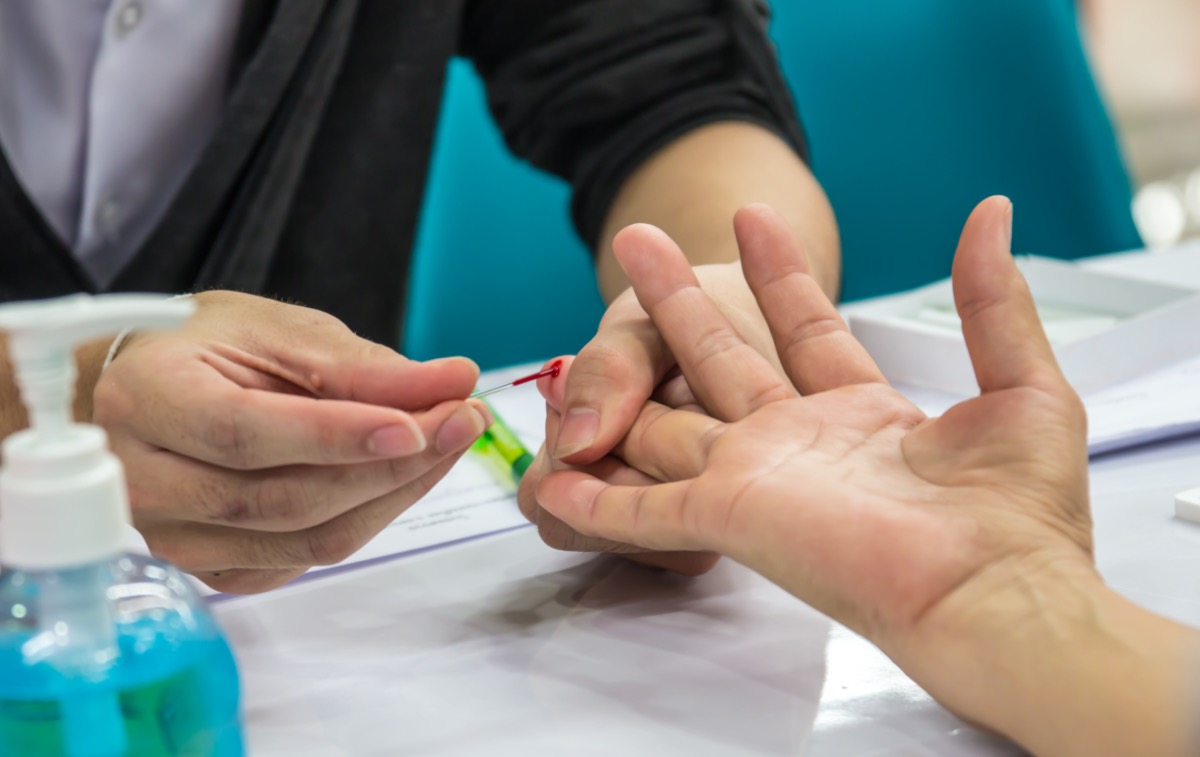Part of aging well is acknowledging that your health deserves more attention with age. The risk of many chronic diseases increases after 50. So does the importance of being vigilant about routine screening and preventative measures. These are the most common health problems for people over 50, and how to prevent them from limiting the quality of your life. Read on to find out more—and to ensure your health and the health of others, don’t miss these Sure Signs You May Have Already Had COVID.


According to the National Osteoporosis Foundation, this bone-weakening condition affects 44 million Americans—nearly half of everyone over age 50. And it’s not just your hips and spine that are at risk: Dental problems like receding gums and tooth loss can also be caused by osteoporosis. Be sure that your diet contains adequate calcium and vitamin D to support bone health. Getting regular exercise—cardio and resistance training—can strengthen bones. Avoid smoking or excessive alcohol. And talk with your doctor about when and how often you should get a bone density test.


According to Harvard Medical School, more than 70 percent of men over age 55 technically have high blood pressure—a measurement over 120/80. Over time, high blood pressure can weaken the walls of blood vessels, increasing the risk of stroke, heart attack, dementia, and kidney problems. Experts recommend getting your blood pressure checked yearly.
RELATED: Forgetting This One Thing Can Mean You Have Dementia


According to American Family Physician, the first risk factor for high cholesterol is being over 55. As we age, the body produces more cholesterol, which can build up in the arteries, increasing the risk of heart disease and stroke. In women, menopause causes LDL (“bad”) cholesterol to rise and HDL (“good”) to drop.
Experts advise getting your cholesterol checked every five years, but older adults may need it done more frequently. Your total cholesterol level should be less than 200 milligrams per deciliter (mg/dL), with an LDL level of less than 100 mg/dL and an HDL level of 60 mg/dL or higher.
RELATED: The #1 Cause of Diabetes, According to Doctors


By 55, your risk of heart disease has been climbing for about a decade—for men, it’s about double the risk of age 45; for women, the risk increases with menopause. According to the American Heart Association, to prevent heart disease at any age, eat a healthy diet, get at least 150 minutes of moderate-intensity exercise each week, and know the early warning signs of a heart attack or stroke.
RELATED: Everyday Habits That Age You Faster, According to Science


Although type 2 diabetes can strike at any age, risk increases significantly after age 40. Left untreated, the condition can lead to severe complications including heart disease, stroke, blindness, and dementia. The American Diabetes Association recommends a regular diabetes screening for all adults over 45. Get tested ASAP, and if you have diabetes, follow your doctor’s recommendations about medication and lifestyle changes to get it under control.
RELATED: One Major Effect of a Multivitamin


Mental health issues can sneak up on us as we age, even without any prior history. Hormone fluctuations and difficulty adapting to life changes can lead to depression or anxiety. Early signs may be subtle, such as insomnia, increased fatigue, or irritability. Talk with your doctor to rule out any physical issues, and consult a therapist or psychiatrist for further help if necessary.
RELATED: 10 Ways to Look 10 Years Younger, Say Experts


The risk of many cancers, including breast, colon, prostate, and ovarian, rises after age 50. Talk to your doctor about what you can do to lower your risk, and how often you should have routine screening tests, such as colonoscopy, mammograms, and the prostate-specific antigen (PSA) test. And to get through this pandemic at your healthiest, don’t miss these 35 Places You’re Most Likely to Catch COVID.